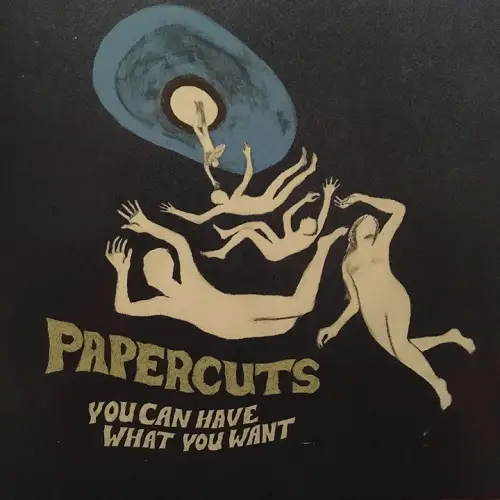News
Papercuts - You Can Have What You Want
3 StarsCertainly not an unpleasant listen, just not an entirely memorable one.
has reemerged under the Papercuts moniker again, with his first record in two years ‘You Can Have What You Want’. It is an album filled with breezy, relaxed pop songs that, while they are all appealing, pleasant sounding tracks, they lack a bit of soul and depth when you come right down to it. The record is highly listenable, for there isn’t a song on the album that is grating or tuneless, but there aren’t many numbers on the album that present anything inspiring or indelible either. It breezes by rather innocuously, seemingly coaxing the sun out briefly from the shadows, but ultimately fails to make a lasting emotional impact.
There is a seemingly intentional detachment to the analog sound of the record that is palpable in both the songwriting and production, and it ultimately lacks a sense of spirit and scope, as the 60s easy-listening melodies seem to plod on, unchanging, throughout the duration of the songs. The opening tracks are mild, gentle introductions to the album, with Quever’s simple but hard to decipher lyrics blending well with the blissful music. But the tone and the pace of these tracks are so relaxed and diaphonous that they could soundtrack a listener’s daydream, and one could feel like they’ve missed listening to the album entirely as their thoughts drifted absently away, guided along by the music.
The first real burst of warmth and feeling on the album is titled, ironically enough, ‘The Machines Will Tell Us So’, which has a real funereal, wistful sound to it, and a mournful chorus to match. The song is a fine example of what draws listeners in to the music of Papercuts, with its moody, understated melody. And the Zombies influenced fuzzed-out bass line and hook of the albums first single ‘Future Primitive’ is enjoyably retro and pleasantly catchy. But meaningful songs are a bit of a rarity on this record, as the rest of the tracks are rather thin, straightforward numbers that are easygoing and amicable, but still remain slightly distant and withdrawn.
The records dispassionate and isolated sound is perhaps due to Quever’s insistence on recording directly to tape, which he believes simply sounds better. And, while the production and sound of the record is winsome and minimal, the distance between the listener and the heart of these songs is a bit too great to overcome. For while ‘You Can Have What You Want’ is certainly not an unpleasant listen in the least, it’s just not an entirely memorable one.
Read More
Papercuts - Life Among The Savages
3 Stars
A more refined, more focused Papercuts than before.
11th May 2014, 12:55pm
Papercuts - Fading Parade
2-5 Stars
A textbook example of a rather decent album being smothered.
28th February 2011, 11:22am
Papercuts, The Legion, London
<b>Papercuts </b>is headlining what seems to be a fairly young and trendy bill…
21st April 2009, 4:07pm
With Rachel Chinouriri, A.G. Cook, Yannis Philippakis, Wasia Project and more!






